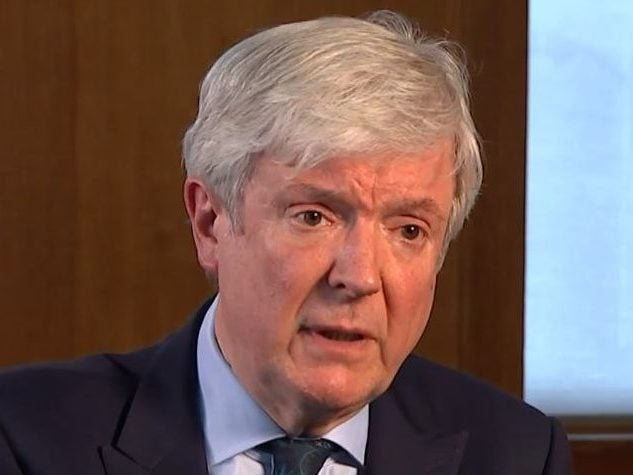
The phrase “mainstream media” has become a “term of abuse” and part of a wider assault on freedom of expression, the head of the BBC has said.
BBC director-general Lord Tony Hall said the term was used by people of all political stripes and claimed “traditional journalism” was now being depicted as a problem in society, rather than a solution.
He made the comments in a wide-ranging speech to the House of Lords yesterday, which touched on fake news, attacks on the press and plans for a BBC-led local news charity.
Lord Hall said he was worried by attacks on journalism in the UK, saying journalists faced “constant anonymous threats online” for reporting opinions that “others might not want to hear”.
He added: “Every day we see attempts to target, troll, intimidate them. To stop them from doing their job. This is more than an attack on journalists. It amounts to a campaign to denigrate their craft.
“The phrase, ‘mainstream media’, is now a term of abuse – used by people of all political persuasions. Traditional journalism is painted as part of the problem rather than the solution. This really worries me.
“Ultimately, it’s an assault on freedom of expression and our duty to seek out the facts – without fear or favour – no matter how inconvenient they might prove to be.”
His comments came a day after international media groups pushed the United Nations to adopt a convention on the safety of journalists.
In a Society of Editors lecture last year, Lord Hall remarked how the term “fake news” had become a “weapon of choice for repressive regimes”.
Speaking to peers yesterday, he described fake news as “the poison in the bloodstream of our societies” that undermined the rule of law.
He added: “In the West, we have witnessed its power to distort our discourse, fuel divisions and influence voter decisions.
“In emerging and developing economies, the picture is even starker.”
Lord Hall pointed to fake news stories around elections in Nigeria last month and the deaths of ten people in India last year following “inflammatory reports about child abduction gangs” that spread online, in illustrating his point.
He added: “In countries where democracy is fragile and digital literacy low, the rise of misinformation now constitutes an urgent crisis.
“And it’s set to grow worse as the weapons of disinformation warfare become ever more sophisticated.”
The BBC boss closed his speech by highlighting the Iranian Government’s harassment and persecution of BBC Persian staff, adding that the “stakes” for the broadcaster’s staff abroad were “often far higher”.
He said: “Our journalists frequently face real dangers in their efforts to expose corruption or simply do their job. They play a priceless role in supporting democracy and the UK’s democratic values around the world.
“So I’m pleased that we’re now talking to the Government about extending its support for what the BBC does overseas – including our BBC World News channel on television.”
Asked for information on its plans for the BBC World News channel, a BBC spokesperson said: “The BBC currently receives some funding from the government for the vital work the World Service does across the globe.
“Such funding is always subject to discussion and we are speaking with the Government about future support, including for BBC World News, in advance of the spending review later this year.”
Picture: Channel 4 News
Email pged@pressgazette.co.uk to point out mistakes, provide story tips or send in a letter for publication on our "Letters Page" blog
